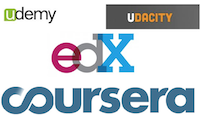
Can Using Individual Online Interactive Activities Enhance Exam Results?
It has been suggested that the use of active learning instructional strategies, both in traditional face-to-face classrooms as well as online courses, enhances learning and results in better learning outcomes. Recently, an asynchronous online Principles of Marketing course offered by a large, public Midwestern university was revised to include the use of a publisher’s individual […]













